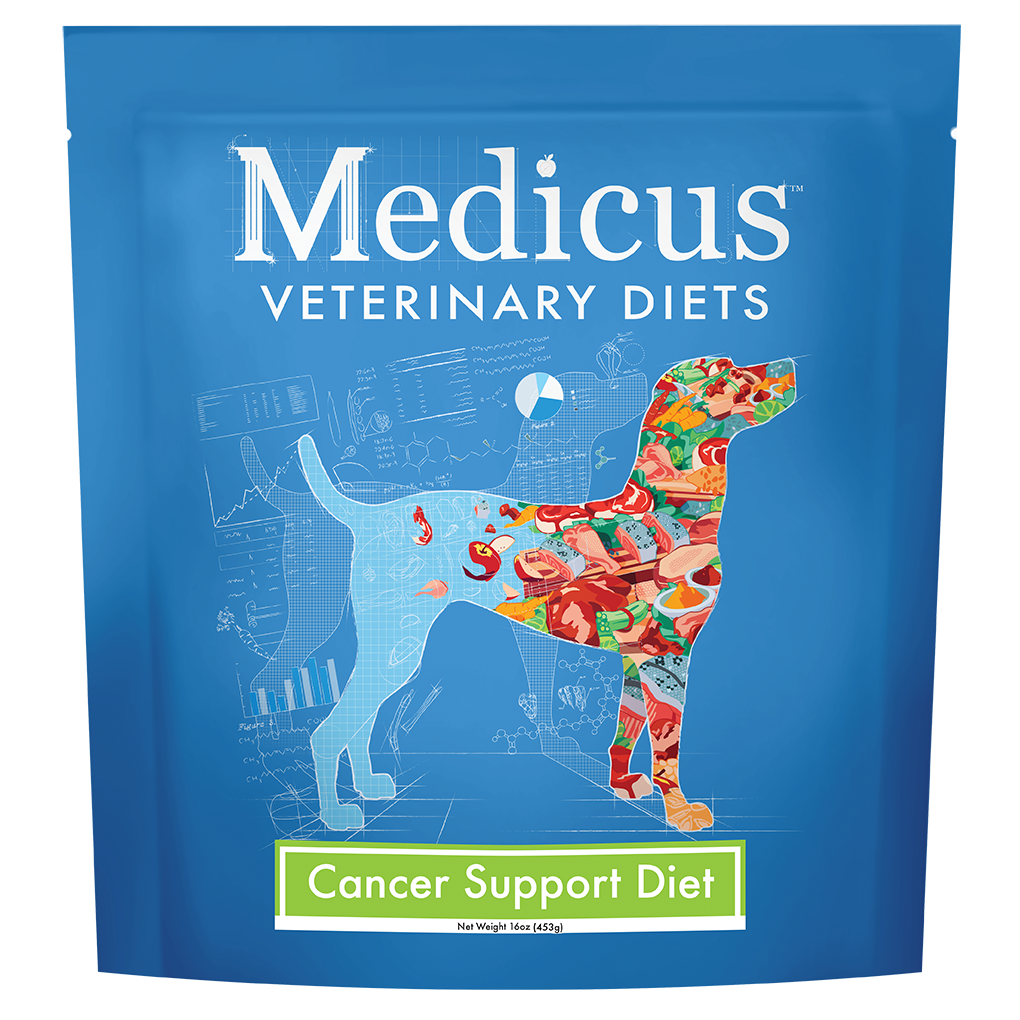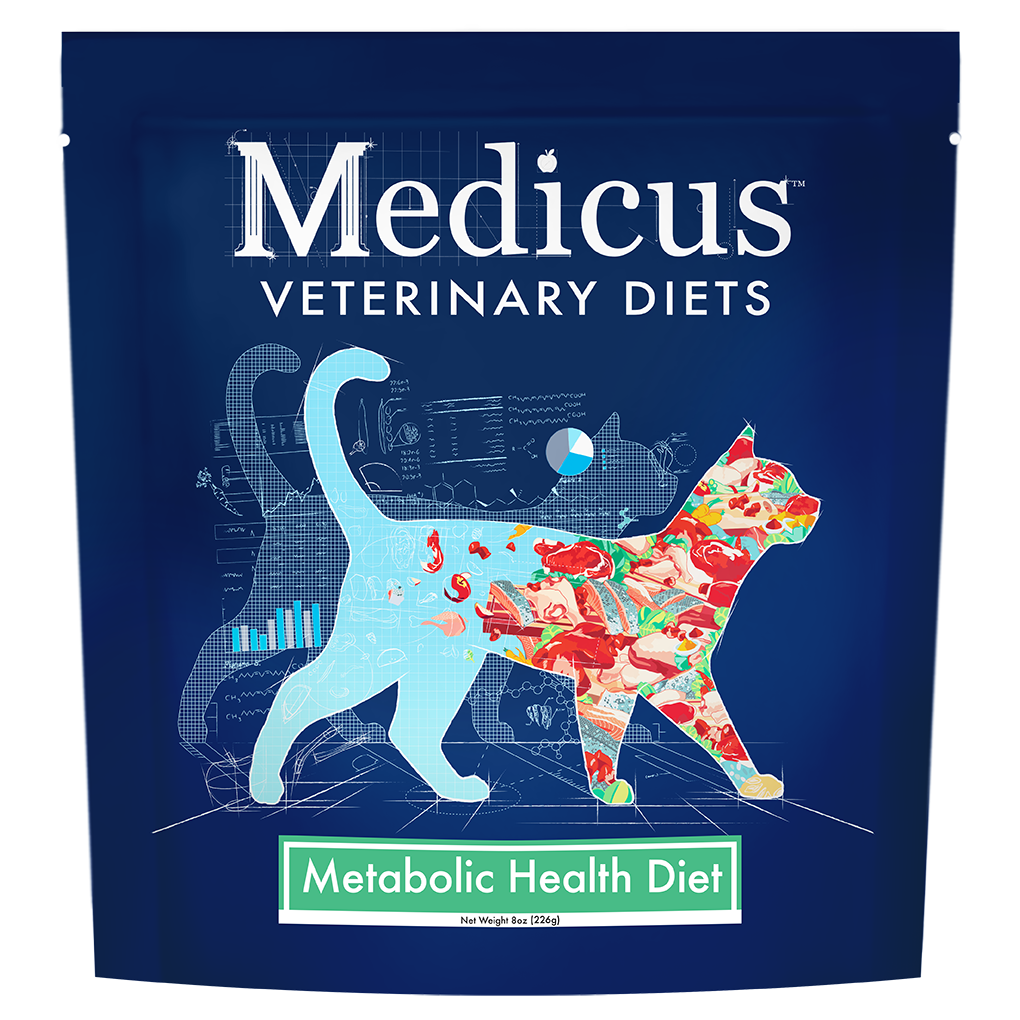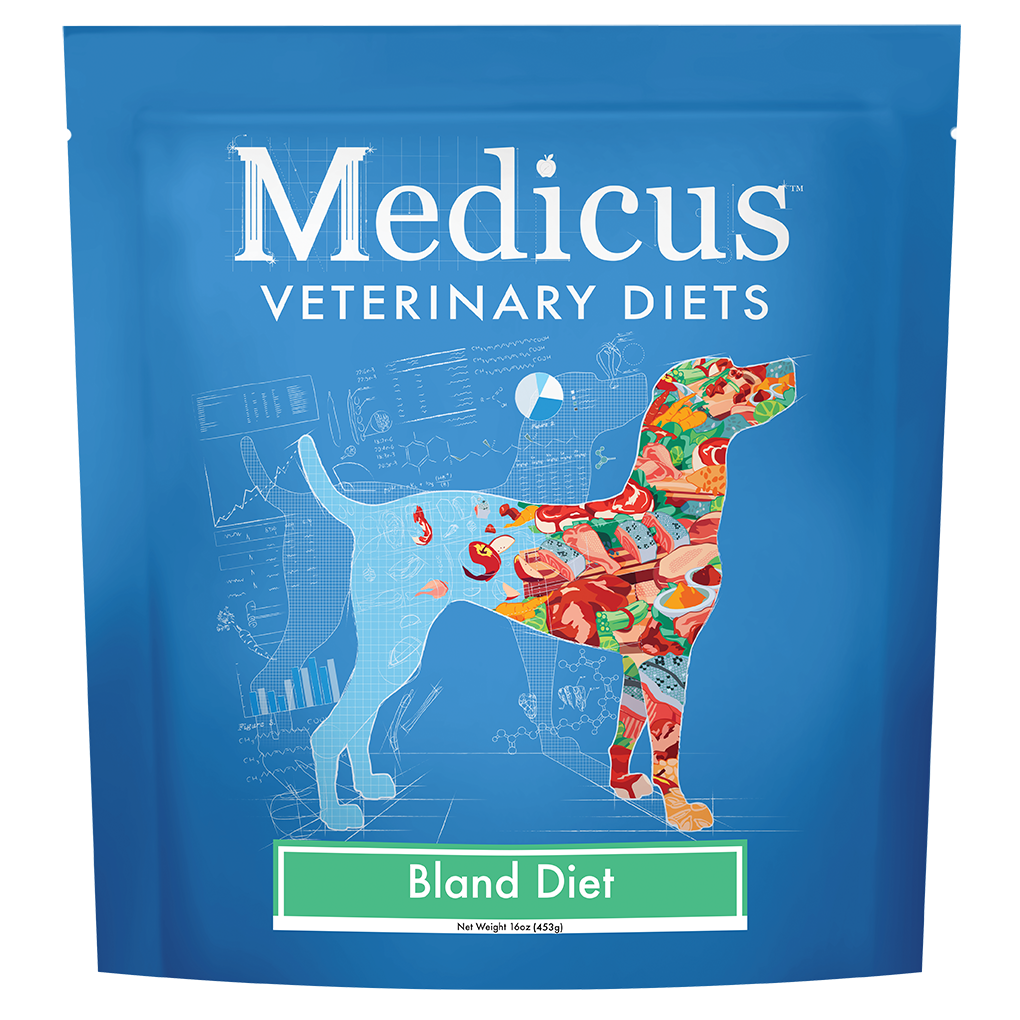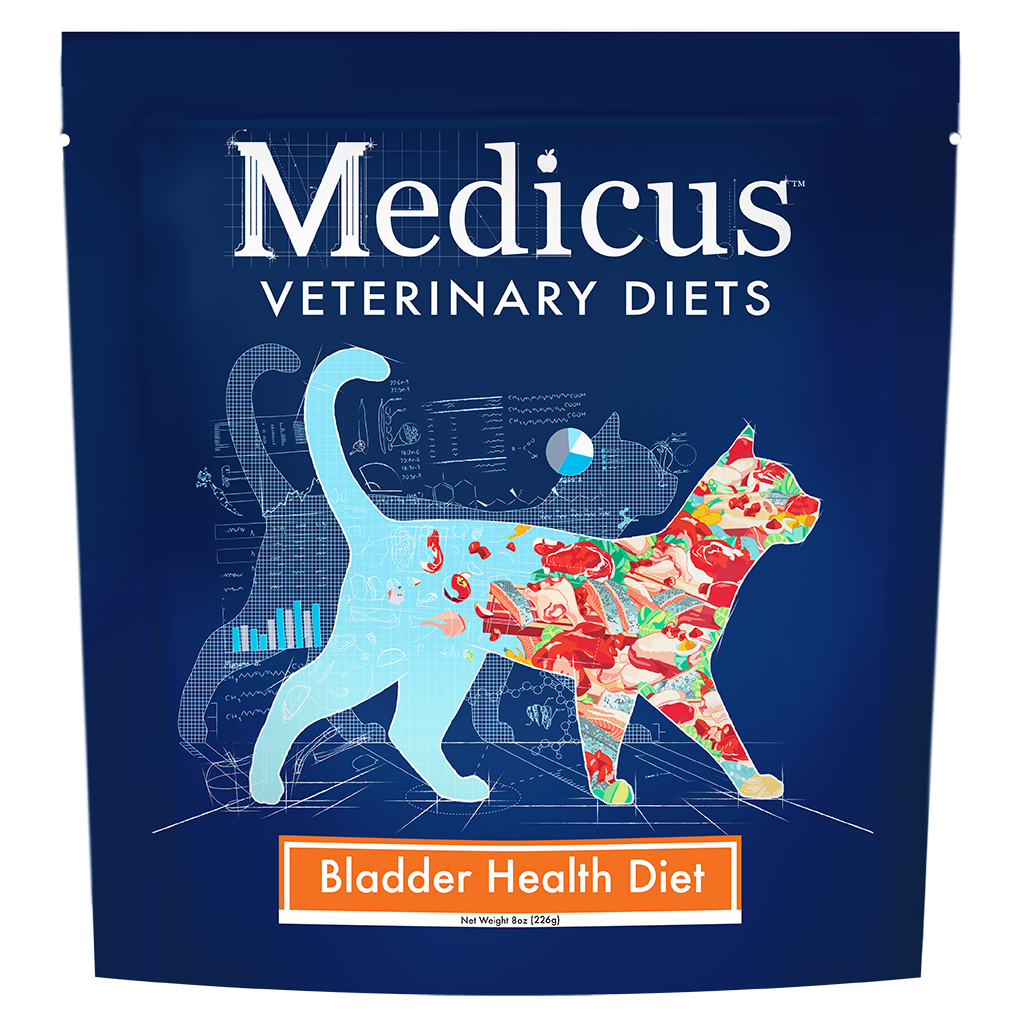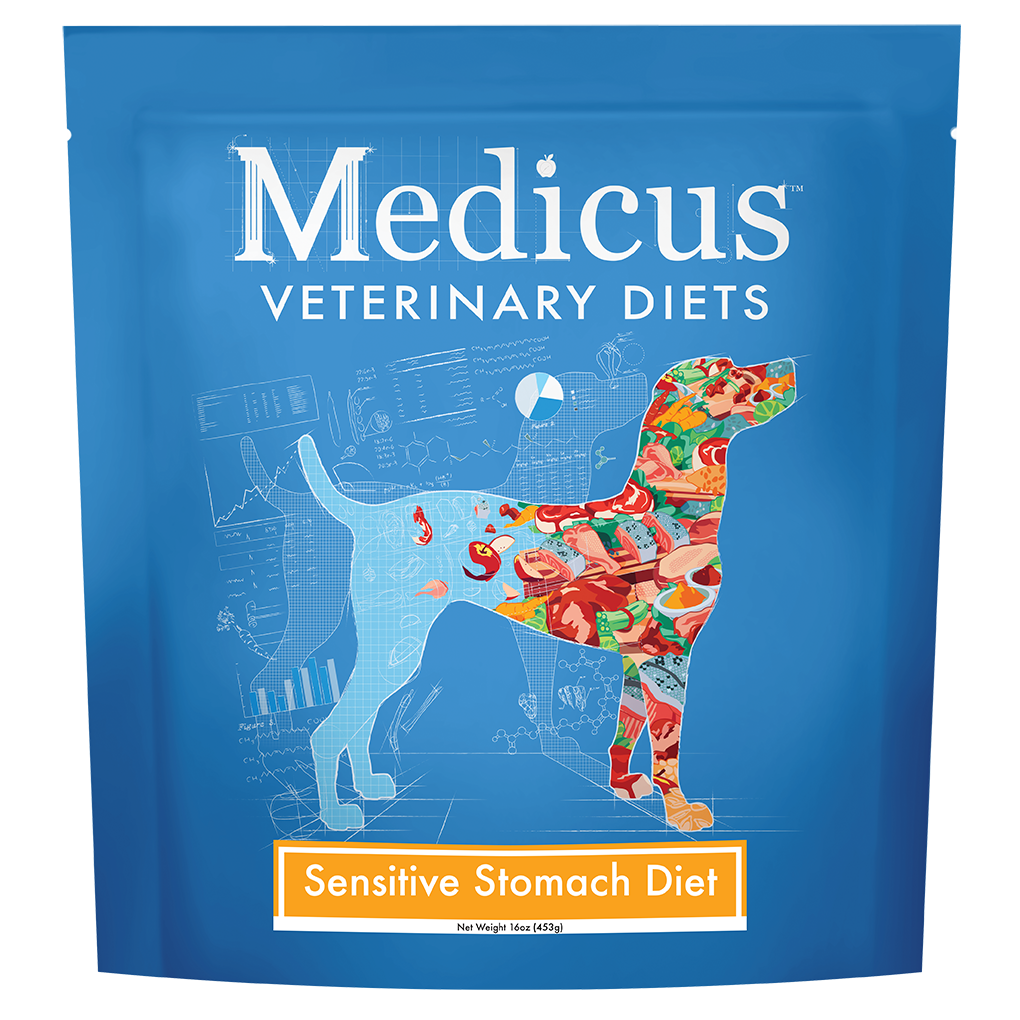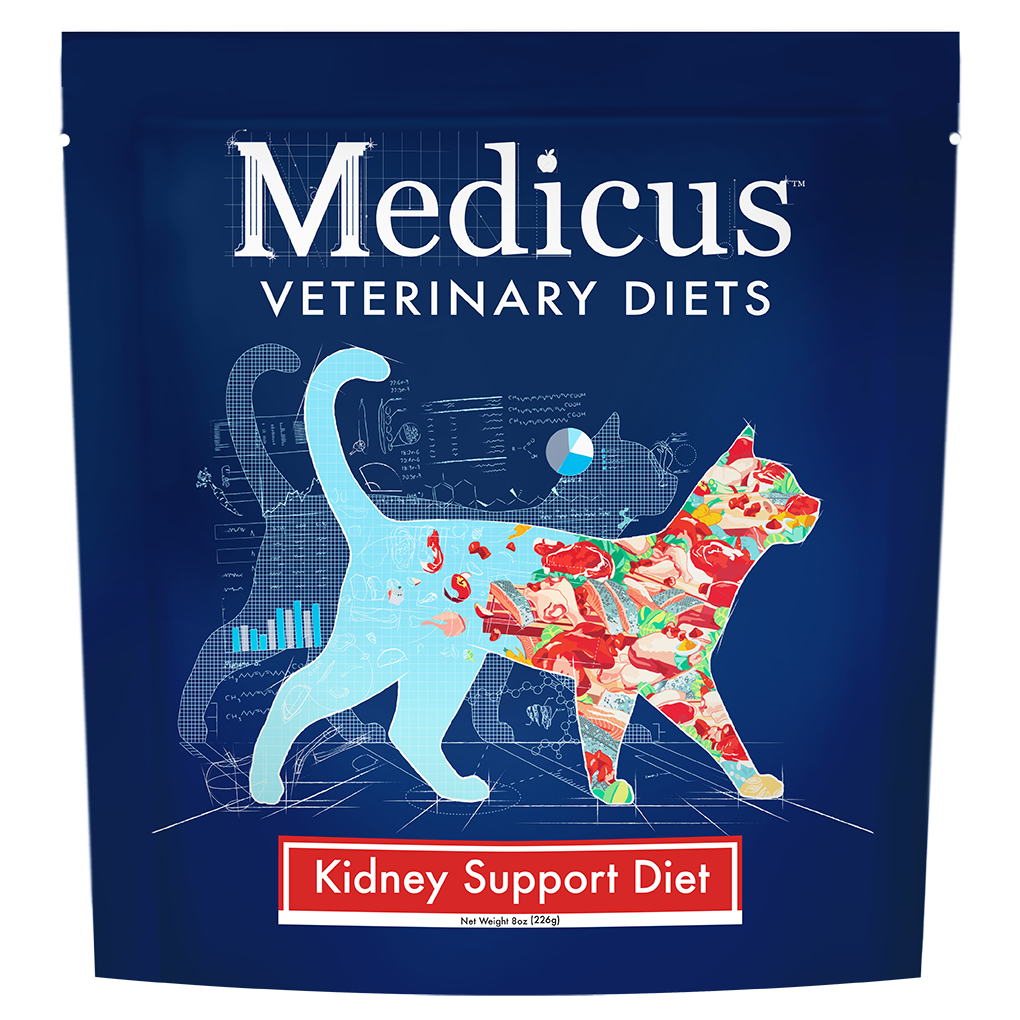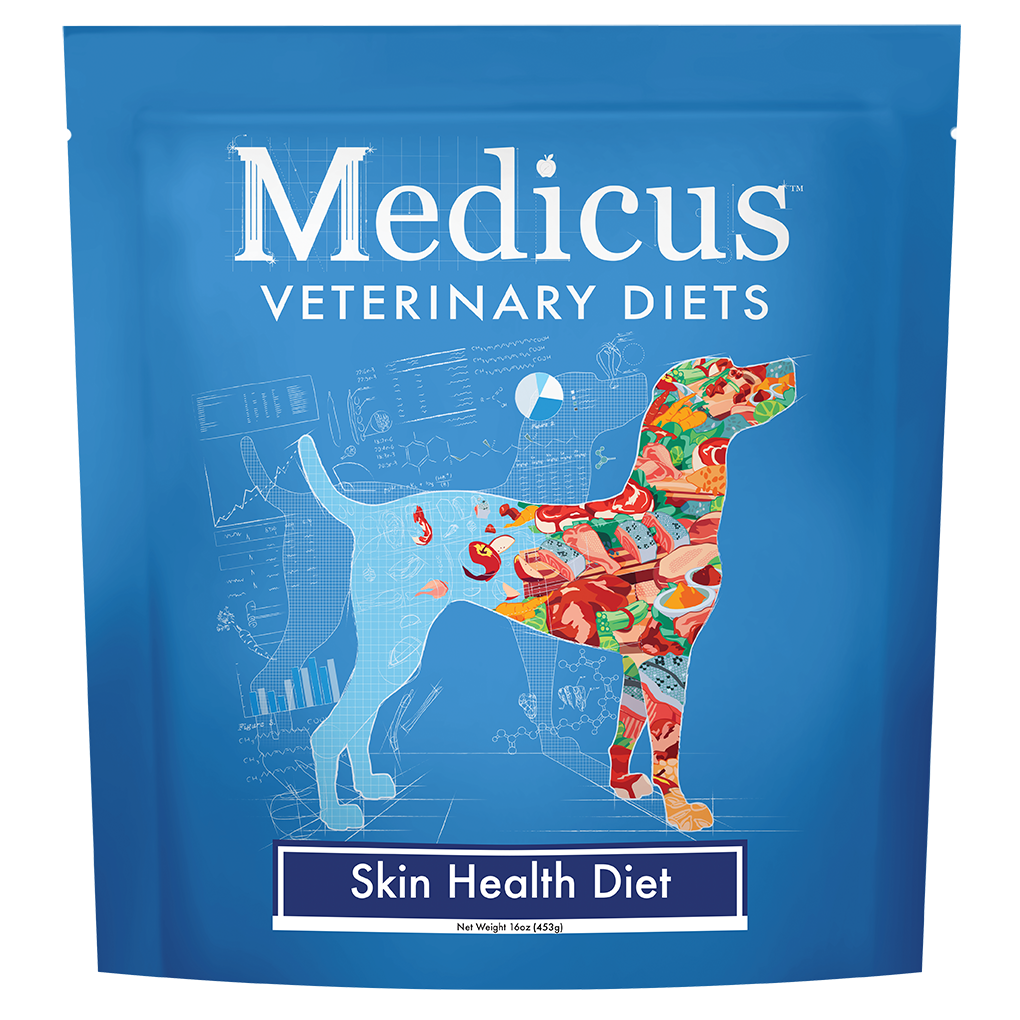- About
- Return to Menu
- Our Ingredients
- Our Approach
- The Science Behind The Diets
- Learn
- Shop
- Webinars
- Return to Menu
- Bladder Health in Cats
- Obesity, Diabetes, & Metabolic Disorders in Cats
- Chronic Kidney Disease in Cats
- Digestive Health in Canines
- Diet’s Foundational Role in Supporting a Dog with Cancer
- Diets Foundational Role In Supporting Your Dogs Skin Health
- Diet’s Crucial Role in Caring for the CKD Dog
- Contact
- For Veterinarians
- Reset Password
- Login

- Cart
- Return to Menu
- Return to Menu
- Return to Menu
- Return to Menu
Vet-developed and reviewed by Independent Veterinary Specialists and Independent Nutrition Consultants, our therapeutic diets utilize science-backed ingredients and a research-led approach to help pets and their guardians when they need it most.
Why Medicus?
Diet is the single biggest choice you can make for your pet’s health. And when you have a sick pet, food becomes absolutely essential because the right nutritional framework can nurture healing.
Years in the making, vets and nutritionists worked hand in hand to develop the first freeze-dried, therapeutic diets that address the nutritional needs of sick pets, so you can give your pet the best.
Whole Foods
Grass-fed meats, wild-caught fish, and organic veggies, all responsibly sourced.
Calculated Nutrition
Extensively researched, the ingredients are picked specifically to address unique nutritional needs.
Vet Developed, Nutritionist Reviewed
We consulted with leading minds in the industry, including Independent Veterinary Specialists and Independent Nutrition Consultants, to formulate these therapeutic diets.
The First Freeze-Dried Therapeutic Diets
The freeze-drying process creates safe, shelf-stable food for immunocompromised pets. Not only is it a safe and effective pasteurization process but also retains 97% of food’s original vitamins and minerals, meaning these diets are undeniably as close to fresh, whole foods as possible.
-
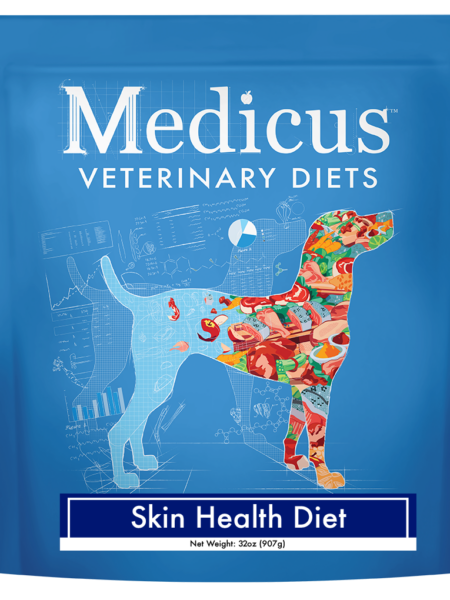
Skin Health Diet – For Dogs
$4.78 – $39.95Price range: $4.78 through $39.95 Select options This product has multiple variants. The options may be chosen on the product page -
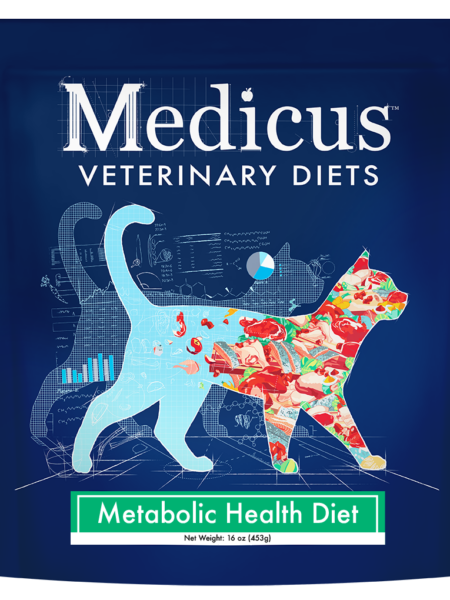
Metabolic Diet – For Cats
$4.78 – $29.95Price range: $4.78 through $29.95 Select options This product has multiple variants. The options may be chosen on the product page -
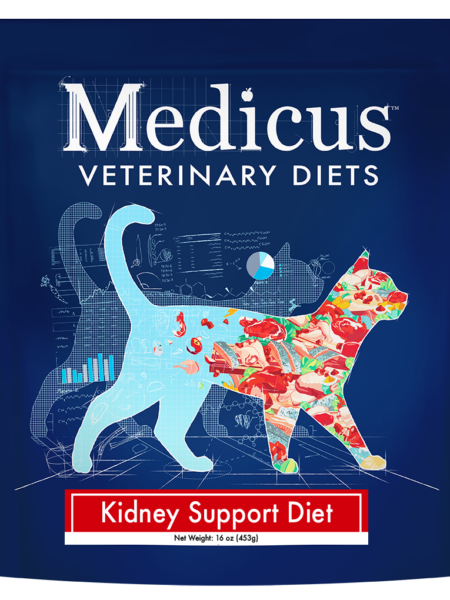
Kidney Support Diet – For Cats
$4.78 – $29.95Price range: $4.78 through $29.95 Select options This product has multiple variants. The options may be chosen on the product page -
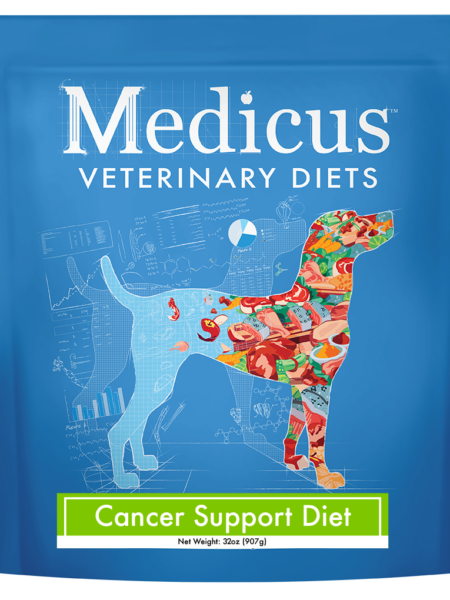
Cancer Support Diet – For Dogs
$4.78 – $39.95Price range: $4.78 through $39.95 Select options This product has multiple variants. The options may be chosen on the product page -
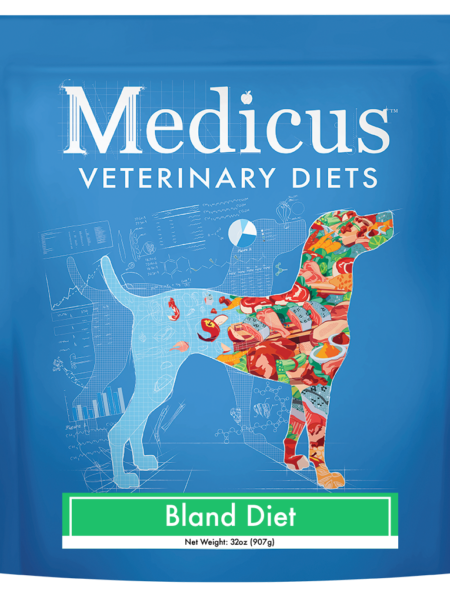
Bland Diet – For Dogs
$4.78 – $39.95Price range: $4.78 through $39.95 Select options This product has multiple variants. The options may be chosen on the product page -
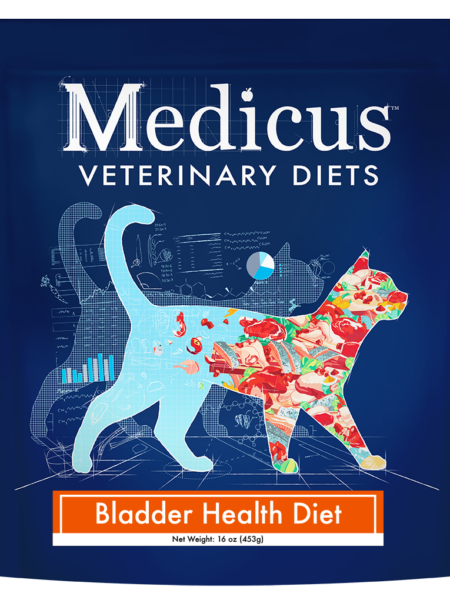
Bladder Health Diet – For Cats
$4.78 – $29.95Price range: $4.78 through $29.95 Select options This product has multiple variants. The options may be chosen on the product page
Rooted in Whole Foods
Fresh, whole-food ingredients are easier for pets to digest and deliver nutrients in a form their bodies can actually use: something backed by real research in dogs and cats.
Every Medicus recipe is built to support healthy digestion and immune function, starting with ingredients that work with the body, not against it.
Led by Modern Science
Medicus formulations are grounded in modern science utilizing two frames of thought– an intimate understanding of food’s most basic architecture and the knowledge of how the disease impacts the body.
Limiting a specific component of a diet like phosphorus for the kidney patient, or choosing a specific ingredient for its form and function, can nurture the body’s innate ability to heal.
Ask us anything.
The latest numbers show a growing problem for our pets – 1 in 2 pets are overweight, there’s been a 50% rise in gut issues in the past 5 years, and 1 in every 2 dogs will develop cancer by age 10.
While these alarming numbers are on the rise, there’s also a large body of scientific evidence pointing to the myriad of health benefits of fresh, whole food diets. These diets are more bioavailable, easier on digestion, the immune system, and your pet’s microbiome.
A Few Fresh Food Studies
Raghavan M, Knapp DW, Bonney PL, Dawson MH, Glickman LT. Evaluation of the effect of dietary vegetable consumption on reducing risk of transitional cell carcinoma of the urinary bladder in Scottish Terriers. J Am Vet Med Assoc. 2005 Jul 1;227(1):94-100. doi: 10.2460/javma.2005.227.94. PMID: 16013542.
Buff PR, Carter RA, Bauer JE, Kersey JH. Natural pet food: a review of natural diets and their impact on canine and feline physiology. J Anim Sci. 2014 Sep;92(9):3781-91. doi: 10.2527/jas.2014-7789. Epub 2014 Jul 8. PMID: 25006071.
Oba PM, Utterback PL, Parsons CM, Swanson KS. True nutrient and amino acid digestibility of dog foods made with human-grade ingredients using the precision-fed cecectomized rooster assay. Transl Anim Sci. 2019 Dec 6;4(1):442-451. doi: 10.1093/tas/txz175. PMID: 32705002; PMCID: PMC6994059.
Do S, Phungviwatnikul T, de Godoy MRC, Swanson KS. Nutrient digestibility and fecal characteristics, microbiota, and metabolites in dogs fed human-grade foods. J Anim Sci. 2021 Feb 1;99(2):skab028. doi: 10.1093/jas/skab028. PMID: 33511410; PMCID: PMC8611730.
And studies are pointing to the dangers of commercial pet food processes that create dry kibble diets.
John H. Tegzes, Brian B. Oakley & Greg Brennan (2019) Comparison of mycotoxin concentrations in grain versus grain-free dry and wet commercial dog foods, Toxicology Communications, 3:1, 61-66, DOI: 10.1080/24734306.2019.1648636
Jiang Zhao, Steven Pacenka, Jing Wu, Brian K. Richards, Tammo Steenhuis, Kenneth Simpson, Anthony G. Hay, Detection of glyphosate residues in companion animal feeds,
Environmental Pollution, Volume 243, Part B, 2018, Pages 1113-1118, ISSN 0269-7491, https://doi.org/10.1016/j.envpol.2018.08.100.
Diet is the most important choice we can make about your pet’s health, and fresh, whole foods provide the nutritional framework to nourish our pets.
- We only use human-grade, whole food ingredients in our recipes.
- We use a gentle process known as freeze-drying to make the food shelf-stable and easier for you.
- The numbers speak for themselves- compare the nutritional analyses, and you’ll see that these therapeutic diets are designed specifically for your pet’s nutritional needs.
We source our foods locally and from trusted food suppliers committed to the quality and safety of their ingredients. The same ones who provide for restaurants. All of our ingredients are grocery-grade, including grass-fed meats, wild-caught fish, and organic produce.
The food is made and manufactured in Wisconsin in a cGMP facility using the highest Quality Control and Food Safety standards.
Dr. Chris Bessent owns Medicus along with the facilities in Wisconsin where the food is made.
As the owner and operator of the manufacturing facilities, Dr. Bessent is able to provide strict oversight and accountability for every step in the process. Every ingredient, each production phase, and the completed batch of food is logged for complete traceability.
It’s quality you can trust from a veterinarian with over 30 years of experience.
Freeze-drying is a process of removing water through sublimation. The 16 -18 hour process removes moisture from frozen ingredients utilizing vacuum and extreme cold. Temperatures drop below freezing, and the evacuated chamber converts water molecules from frozen to vapor, skipping the liquid phase. As a result, the ingredients go from frozen to dry without ever being thawed or cooked.
It’s a process pioneering how we feed our pets and undeniably the best way to offer food as close to fresh, whole food as possible. It makes ingredients like clean, quality meats and produce shelf-stable and safe while preserving all of the nutrition for your pet.
We understand concerns about avian influenza H5N1and the safety of pet foods.
All Medicus recipes undergo a pasteurization step at the end of the freeze-drying process. This step involves heating ultradry meat or organs to 165°F for at least 15 seconds, achieving a 5-6 log reduction of pathogens like salmonella, E. coli, and kills viruses such as avian influenza H5N1.
Is Pasteurization Effective?
Yes. The pasteurization process is considered sufficient to inactivate any virus in the meat, including highly pathogenic avian influenza H5N1 ensuring the safety of our products.
Do You Conduct Safety Testing?
Absolutely. We use third-party testing to validate the effectiveness of our pasteurization process and verify that every batch meets rigorous safety standards.
Should I Be Concerned About Feeding Freeze-Dried Products?
Not ours. Our freeze-drying and pasteurization protocols ensure that our products are safe, nutritious, and free from harmful pathogens.
And What About Sourcing?
We source all our meats from USDA-approved and inspected plants. Each supplier attests that all raw meat purchased for The Simple Food Project and Medicus Veterinary Diets is verified free from HPAI H5N1 and sourced from healthy herds or flocks. This verification is a key requirement in our Approved Vendor selection process, ensuring the highest quality and safety standards.
Health & Nutrition Tips
Sign up and get content to help you make more informed decisions about your pet’s care.
- Automatically re-order your favorite products on your schedule.
- Easily change the products or shipping date for your upcoming Scheduled Orders.
- Pause or cancel any time.


